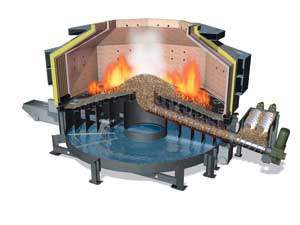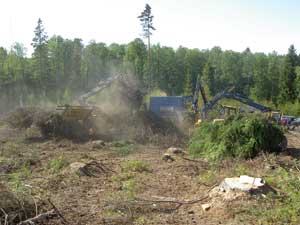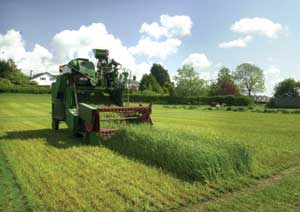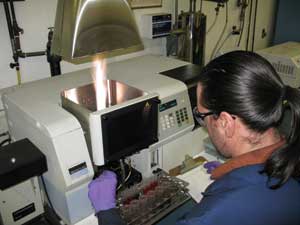July 2008
 View Full Print Edition
View Full Print EditionBusiness Briefs
Columns

Gas Pains
By Rona Johnson

Risk Factors: Protect the Company and the Investor
By Sara Thompson
Canola Biodiesel: Good for the Heart, Engine
By Angela Dansby
Featured

Feeding it Back
By Diane Greer
The U.K.'s food industry is discovering the economic benefits of using combined-heat-and-power systems fueled by biomass or biogas. New technologies to convert wastes to renewable energy are gaining in popularity due to the high cost of energy and waste disposal, pressure to reduce carbon emissions and divert waste from landfills.
Anaerobic Organisms Key to Coskata's Rapid Rise
By Jessica Sobolik
Not many people were familiar with Coskata Inc. when General Motors Corp. announced its partnership with the Chicago-based ethanol technology company in January. Since then, Coskata's business has accelerated at a rapid pace, making thermochemical ethanol production from biomass a near-term reality.

Eyes on the North: Canada Ramps Up Bioenergy Activity
By Crystal Luxmore
Delivering a Sweet-Fueled Vehicle
By Jerry W. Kram

Breakthroughs in Green Gasoline Production
By Jessica Ebert
Biomass-derived fuels are garnering a lot of attention because they are chemically similar to petroleum-based fuels and can be used in existing engines and moved through the pipeline system.

Grass: It's Not Just for Grazing
By Susan Aldridge
We know cows like it-and by eating certain varieties, they give more milk. So do these grasses' higher sugar content also mean greater ethanol output?

Sizing-Up Anaerobic Digestion
By Bryan Sims / Photos By Jim Manganella
Environmental Power Corp. aims to become a premier player in the biomass industry by developing large-scale anaerobic digestion systems. Biomass Magazine talks with company officials about their thriving business model and how it could become the standard for others who want to convert waste into energy.

Pellet Properties
By Jerry W. Kram
Economists exhort consumers to gather as much information as possible before making a purchase. But for those buying fuel pellets for residential or industrial heat, basic information such as heat content, ash and chloride can be hard to obtain. The Pellet Fuels Institute is helping pellet manufacturers create testing programs to help consumers know what they are buying.

Is There Room For Camelina?
By Khalila Sawyer
With a short growing season and low harvesting costs, Camelina sativa could hold a small market in the western Canadian biofuels industry. Despite those advantages, limited research has been done to determine its full agronomic potential. While it's been touted as a potential feedstock for biodiesel, it remains an under-exploited crop, and with an industry entrenched in canola-based biodiesel, is there enough room to consider camelina?

Do Oil and Biodiesel Mix?
By Kris Bevill
Nova Biosource Fuels Inc. is headquartered in Houston-the heart of America's oil industry. The biodiesel company has several former oil executives and industry professionals on its payroll who think there's room enough in Texas for both fuels.
Rising in the East
By Khalila Sawyer
With a number of new developments in the biofuels sector, eastern Canada is making waves with new funding, projects, opportunities and hope. But, with a lack of provincial government support and biofuel initiatives, the renewable fuels industry in the Maritimes is struggling to catch up to the rest of the country. Nevertheless, eastern Canada continues working to establish its presence in the biofuel industry with a variety of resources and opportunities.

The Nature of Standards
By Jerry W. Kram
A significant effort has been made by the biodiesel industry to create quality standards and encourage producers to adhere to those standards. But why are standards necessary in the first place? What do they contribute to the industry that makes all the time, effort and negotiations worthwhile?

Palm Oil Fights Back
By Susanne Retka Schill
Malaysian oil palm growers try to turn the tide of public criticism with a conference devoted to discussing the tropical oil crop's sustainability and carbon footprint.

Micromanaging Fuel Use
By Ron Kotrba
Rising fuel prices and the need to conserve resources and protect the environment make excellent motivators for fleet operators to reconsider how they refuel.
Contributions
Under Pressure Underground: Gravity Pressure Vessels Convert Waste into Biofuels
By Peter Hurrell and Zbigniew "Zig" Resiak












